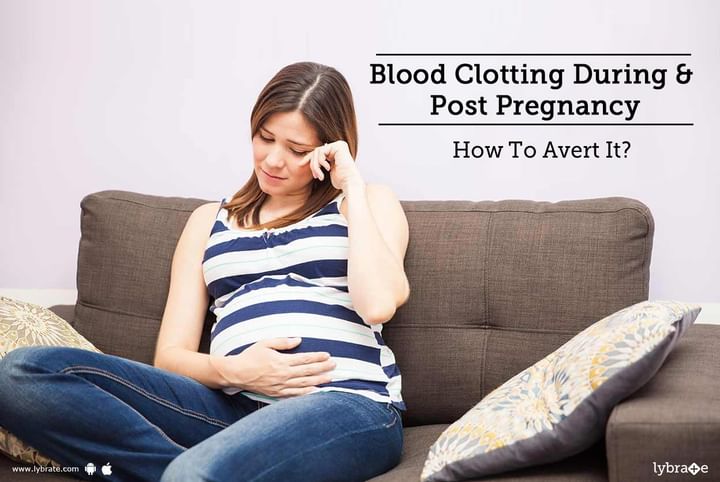Blood Clotting During & Post Pregnancy - How To Avert It?
Clotting of blood during or after pregnancy is fairly common these days. While the reasons for these are numerous, the driving reason behind this being that the mother is weak after such an ordeal and it is, therefore, likely to affect her health. In pregnant women, blood clots tend to form in the deep veins present in the legs or near the pelvic area. The condition is known as Deep Vein Thrombosis (DVT). One of the main concerns for people suffering from Deep Vein Thrombosis (DVT) is the occurrence of Pulmonary Embolism (PE), which is a life threating diseases and is caused when a DVT breaks and travels to the blood vessels connected to the lungs.
The symptoms of Deep Vein Thrombosis (DVT)
According to the data published on “Centre for Disease Control and Prevention” website, from a recent survey conducted it has been estimated that almost 900,000 people suffer from Deep Vein Thrombosis (DVT) every year in the United States i.e. 2 in every 1000 people suffer from this life-threatening disease.
This disease although life-threatening can be taken into account by proper medical care at the early stages and therefore patients are advised to look out for any or all of the following symptoms-
- The patient is experiencing pain, swelling or tenderness in one of their legs, although both might have been affected.
- You have noticed a change in skin colour, and it has taken a reddish shade.
- There is a warm sensation in and around the area of the clot.
- The veins on your legs are appearing larger than they should.
Although all of these are proven symptoms for Deep Vein Thrombosis (DVT), it is common to have discomfort from swelling legs during pregnancy and does not always mean that the patient has symptoms of Deep Vein Thrombosis (DVT). If you are having the slightest thought that it may be a case of Deep Vein Thrombosis (DVT), you should immediately contact your GP, midwife, or call your maternity unit.
Treatment for Deep Vein Thrombosis (DVT)
When a patient is suffering from Deep Vein Thrombosis (DVT) and she is pregnant, anticoagulants, which is a medicine that prevents clotting of blood, is administered to them. While not all anticoagulants are safe to use during pregnancy, quite a few are. It is highly advisable that a doctor or medical practitioner is consulted before taking any further step.
How to prevent Deep Vein Thrombosis (DVT)
Like all diseases around the world, Deep Vein Thrombosis (DVT) is too a preventable one if the certain Do’s and Don’ts are kept in mind. Below is a list of certain things to keep in mind, in order to prevent Deep Vein Thrombosis (DVT)-
- Being active and moving around regularly, will keep the blood circulation normal.
- Beware of your family history and consult your doctor with the same.
- Look out for symptoms and contact your doctor at once if you see one.
Every disease is preventable and curable. It is on us, what we choose to do with it, succumb to it, or stand up and fight it. Look out for the above-mentioned points and you will be at a safe distance from the clutches of Deep Vein Thrombosis (DVT).



+1.svg)
